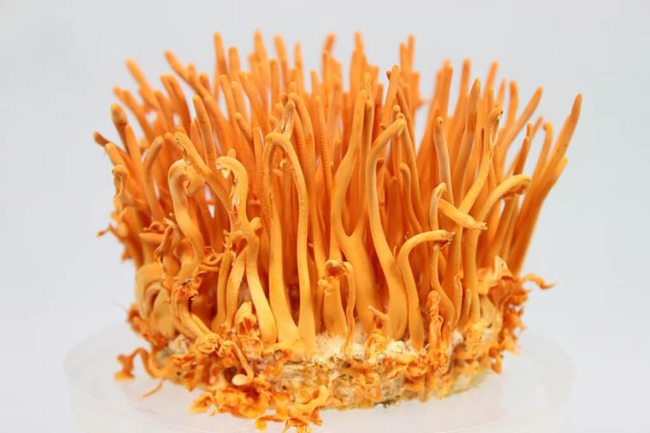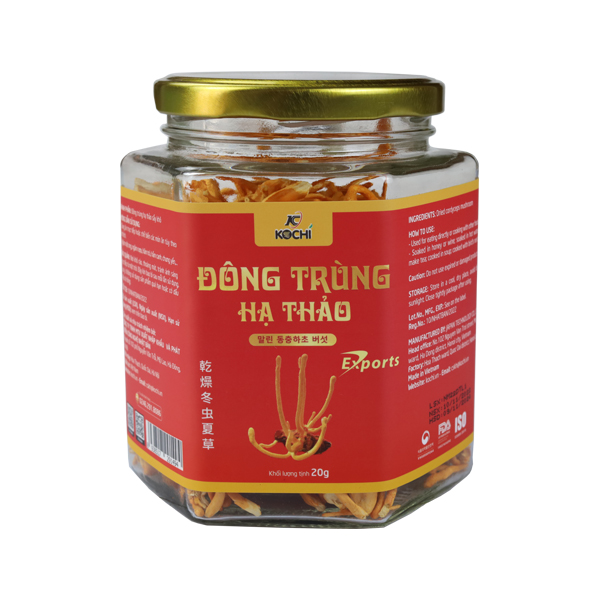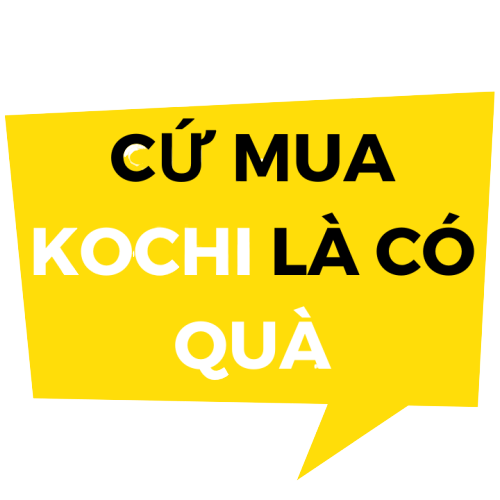Cordyceps Sinensis is a unique combination of plant and animal components with valuable active compounds that offer numerous health benefits. What scientifically proven benefits does Cordyceps Sinensis provide?
Nội Dung
1. What is Cordyceps Sinensis?
Cordyceps Sinensis is a parasitic complex consisting of the Cordyceps fungus and the host larvae (caterpillar) of the Thitarodes moth species. The fungus and the larvae have a symbiotic relationship. Cordyceps Sinensis grows in the wild in the high-altitude regions of the Tibetan Plateau and the Himalayas, at altitudes above 3000m and temperatures below 21°C. It ceases to grow at temperatures above 25°C.
Due to excessive exploitation, wild Cordyceps Sinensis is currently at risk of extinction. Researchers have studied artificial cultivation in laboratory settings, which takes around 40 days and yields Cordyceps mycelium (often yellow in color) [1]. Vietnam is a country that has successfully cultivated artificial Cordyceps Sinensis, which exhibits similar properties to natural Cordyceps Sinensis.

What is Cordyceps Sinensis?
2. What are the main active components of Cordyceps Sinensis?
More than 20 bioactive compounds have been found in Cordyceps Sinensis. The most notable group of active components includes polysaccharides such as cordycepin, cordyceptic acid, adenosine, and sterols. In addition, Cordyceps Sinensis contains antioxidant, immunomodulatory, anti-inflammatory, anti-tumor, reproductive enhancement, lipid-lowering, and blood sugar-regulating properties. [1]
3. What are the effects of Cordyceps Sinensis?
3.1. Improving kidney function and sexual potency
An analysis of 22 studies involving 1,746 participants examined the efficacy of Cordyceps sinensis preparation in individuals with chronic kidney disease. The findings indicated that the Cordyceps sinensis preparation has the potential to significantly reduce serum creatinine levels, increase creatinine clearance, and decrease urinary protein within 24 hours [2].
Cordyceps sinensis has the ability to regulate the release of sex hormones such as testosterone, estrogen, progesterone, and restore impaired sexual functions [3].

Cordyceps sinensis is beneficial for the kidneys
3.2. Stabilizes blood sugar levels
Cordyceps sinensis helps enhance the activity of enzymes that promote glucose metabolism and increases insulin sensitivity, thereby aiding in lowering blood sugar levels [3].
In animal studies, Cordycepin has also shown benefits in reducing kidney damage caused by diabetes [4].
3.3. Stabilizes blood pressure
Extracts of Cordyceps sinensis have the ability to regulate blood vessels, dilate blood vessels, and lower blood pressure in experimental mice [5].
3.4. Reduces blood lipids
According to reports, Cordycepin is highly effective in reducing overall cholesterol levels, LDL-cholesterol, triglycerides, regulating lipid metabolism, and reducing hyperlipidemia caused by a high-fat diet [4].
3.5. Enhances immune function
The polysaccharide component of Cordyceps sinensis has been reported to enhance immune function by increasing the production and activity of macrophages. There is growing research demonstrating the immunomodulatory effects of Cordycepin (the main active compound found in Cordyceps sinensis), particularly its bidirectional modulation of adaptive and innate immune responses in cases of immune deficiency or excessive immune reactions [3, 4].
3.6. Combats fatigue and improves physical stamina
The benefits of Cordyceps sinensis in combating fatigue and weakness gained attention in 1993 when some world champion athletes revealed their dietary regimen that included Cordyceps sinensis. The anti-fatigue activity is based on enhancing energy metabolism in the body, facilitating efficient oxygen utilization, improving respiratory function, and increasing muscle activity [3].
3.7. Enhances cognitive function
Cordyceps sinensis fibers also act as an antidepressant, helping improve mood and cognition [3].
3.8. Antioxidant and anti-aging effects
Polysaccharides extracted from Cordyceps sinensis have the ability to scavenge free radicals (the main agents of oxidation), protect against neurotoxicity, combat oxidative stress, and prevent the aging process [3].
3.9. Other effects
Protects the liver; Enhances digestive function.

Kochi Cordyceps Sinensis
4. Who should use Cordyceps sinensis?
- People with impaired kidney function.
- Elderly individuals with diminished sexual function.
- Individuals with high blood sugar levels or diabetes who want to prevent complications.
- People with high blood pressure.
- Individuals with lipid disorders and atherosclerosis.
- People with impaired memory and cognitive function.
- Individuals experiencing fatigue, reduced physical strength, or recovering from illness, who want to enhance their immune system.
- Individuals seeking to improve digestive function, enhance overall health, and support liver and kidney function.
5. How to use Cordyceps sinensis
Methods of consuming Cordyceps sinensis include direct consumption or incorporation into various dishes according to personal preference.
- Cordyceps Tea: Take 3-5 dried Cordyceps sinensis strands and add approximately 200ml of boiling water in a teapot or thermos. After 15-30 minutes, the tea is ready to be consumed and can be enjoyed throughout the day.
- Steamed Bird’s Nest: Prepare 5g of cleaned bird’s nest, 3-5 dried Cordyceps sinensis strands, and add ingredients such as lotus seeds, red apple, rock sugar, ginger, or jujube according to personal preference. Add approximately 200ml of water and steam for 15-20 minutes until fully cooked.
- Incorporate into dishes: Add dried Cordyceps sinensis strands to porridge, soups, braised dishes, etc., after they are fully cooked and the heat is turned off. Stir well and serve.
- Honey Infusion: Combine 5g of dried Cordyceps sinensis with 500ml of honey. Let it soak for about 20 days before using.
- Alcohol Infusion: Soak 5g of dried Cordyceps sinensis in 500ml of white wine. After 20 days, it is ready for consumption.
Cordyceps sinensis is a highly nutritious food with valuable components that provide numerous health benefits. It is suitable for daily consumption by various individuals. If you wish to learn more about selecting high-quality Cordyceps sinensis, please provide your information to receive advice from the Kochi team.
References:
- PGS. TS Trần Đáng(2017), Thực phẩm chức năng, Nhà xuất bản Y học: 576-578.
- Zhang H. W., Lin Z. X., Tung Y. S. et al (2014), “Cordyceps sinensis (a traditional Chinese medicine) for treating chronic kidney disease“, Cochrane Database Syst Rev. 10.1002/14651858.CD008353.pub2(12): Cd008353.
- Das G., Shin H. S., Leyva-Gómez G. et al (2020), “Cordyceps spp.: A Review on Its Immune-Stimulatory and Other Biological Potentials“, Front Pharmacol. 11: 602364.
- Ashraf S. A., Elkhalifa A. E. O., Siddiqui A. J. et al (2020), “Cordycepin for Health and Wellbeing: A Potent Bioactive Metabolite of an Entomopathogenic Cordyceps Medicinal Fungus and Its Nutraceutical and Therapeutic Potential“, Molecules. 25(12).
- Chiou W. F., Chang P. C., Chou C. J. et al (2000), “Protein constituent contributes to the hypotensive and vasorelaxant activities of Cordyceps sinensis“, Life Sci. 66(14): 1369-76.



